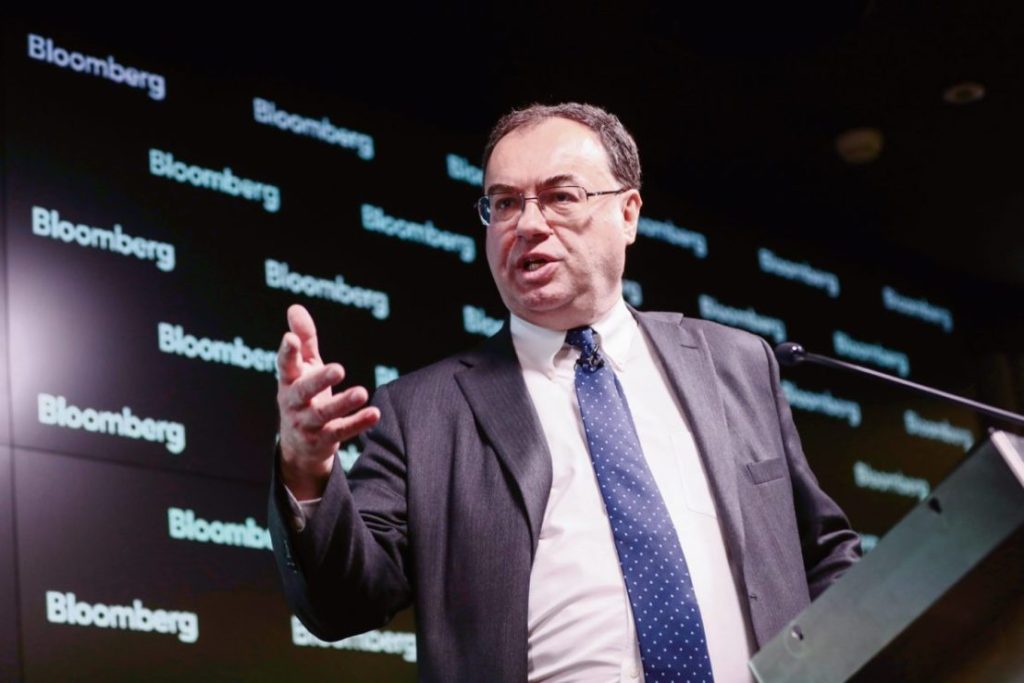In a recent discussion with CNBC, Andrew Bailey, the Governor of the Bank of England, explored the potential disinflationary impact of President Trump’s tariffs on UK prices, while also acknowledging concerns regarding economic growth. As the UK navigates this complex economic landscape, Bailey highlighted the importance of understanding the broader implications of these tariffs, especially in terms of their effect on supply and demand dynamics.
Impact of Tariffs on UK Economy
Bailey discussed the nuanced impacts of tariffs, noting that while they may pressure inflation rates downward, they also pose significant challenges to UK economic growth. « Growth is too weak at the moment, » he remarked, suggesting that this weakness might stem not only from subdued demand but also from supply-side constraints. His comments underscore the broader economic uncertainty accompanying tariff implementations and the resultant market shifts.
Bailey emphasized that the redirection of goods due to tariffs could lead to inflationary consequences for the UK. However, he pointed out that countermeasures, such as retaliatory tariffs, could negate these effects, highlighting the delicate balance policymakers must maintain in navigating trade dynamics.
Revising Economic Projections
The conversation with Bailey came at a pivotal moment, as the Bank of England prepares to reassess its inflation projections, especially in the context of recent global developments. The Bank’s current forecast anticipates inflation to peak at 3.75% this year, but adjustments are expected in the coming weeks due to the economic ripple effects of the tariffs.
The International Monetary Fund (IMF) recently adjusted the UK’s growth outlook to 1.1% for this year. Bailey expressed optimism that a trade deal between the UK and the US could provide a positive influence on long-term growth, but warned that such a deal alone might not shield the UK from broader slowdowns in economic activity.
Interest Rates and Monetary Policy
As the Bank of England’s Monetary Policy Committee (MPC) looks towards its next meeting in May, discussions around potential interest rate cuts are at the forefront. Bailey indicated that despite rising gilt yields, the decision to delay a recent gilt auction was a prudent move under the prevailing market conditions. The MPC is expected to consider a rate cut by 25 basis points, reflecting the need to support growth amidst a challenging economic landscape.
Bailey also downplayed fears regarding the stability of the US dollar as a reserve currency, noting that while market deleveraging, particularly in dollar markets, has been observed, it does not necessarily indicate an imminent shift in reserve currency preferences. Bailey’s confidence in the stability of American financial institutions and assets provided reassurance to market observers.
Monetary Policy and Transparency
During an event at the Peterson Institute for International Economics, Clare Lombardelli, Deputy Governor of the Bank of England, echoed Bailey’s sentiments, stressing the importance of transparency and adaptability in monetary policy. She highlighted that while targets are essential, flexibility is crucial, especially when inflation rates deviate from expectations.
Lombardelli underscored the Bank’s commitment to explaining its economic forecasts and policy decisions, a strategy that has been integral since the institution took on increased responsibilities in 2013. She emphasized that ongoing communication is vital in maintaining public trust and ensuring that monetary interventions align with evolving economic realities.
As the UK continues to navigate this complex economic landscape, the insights from Bailey and Lombardelli underscore the importance of strategic foresight and adaptability in guiding monetary policy decisions, with an eye on both domestic pressures and global developments.
